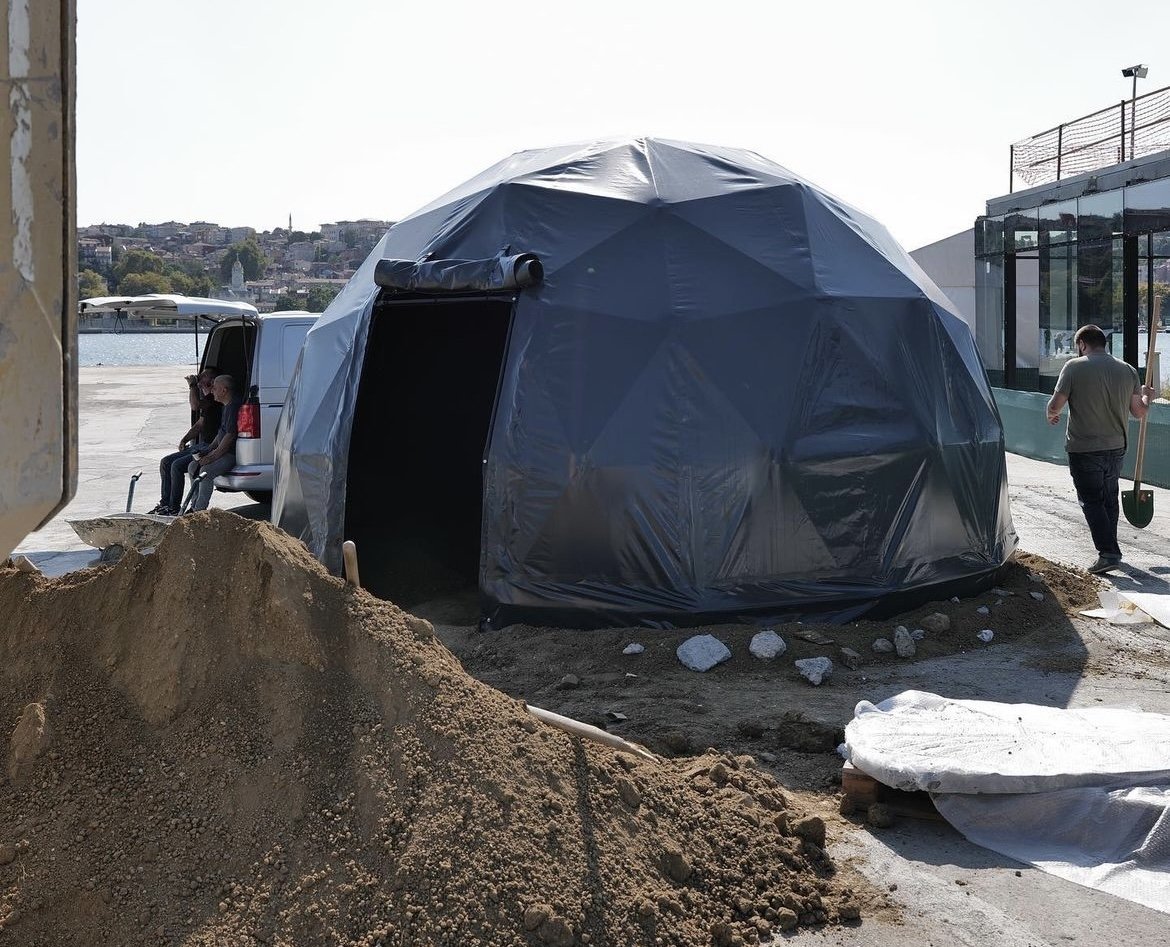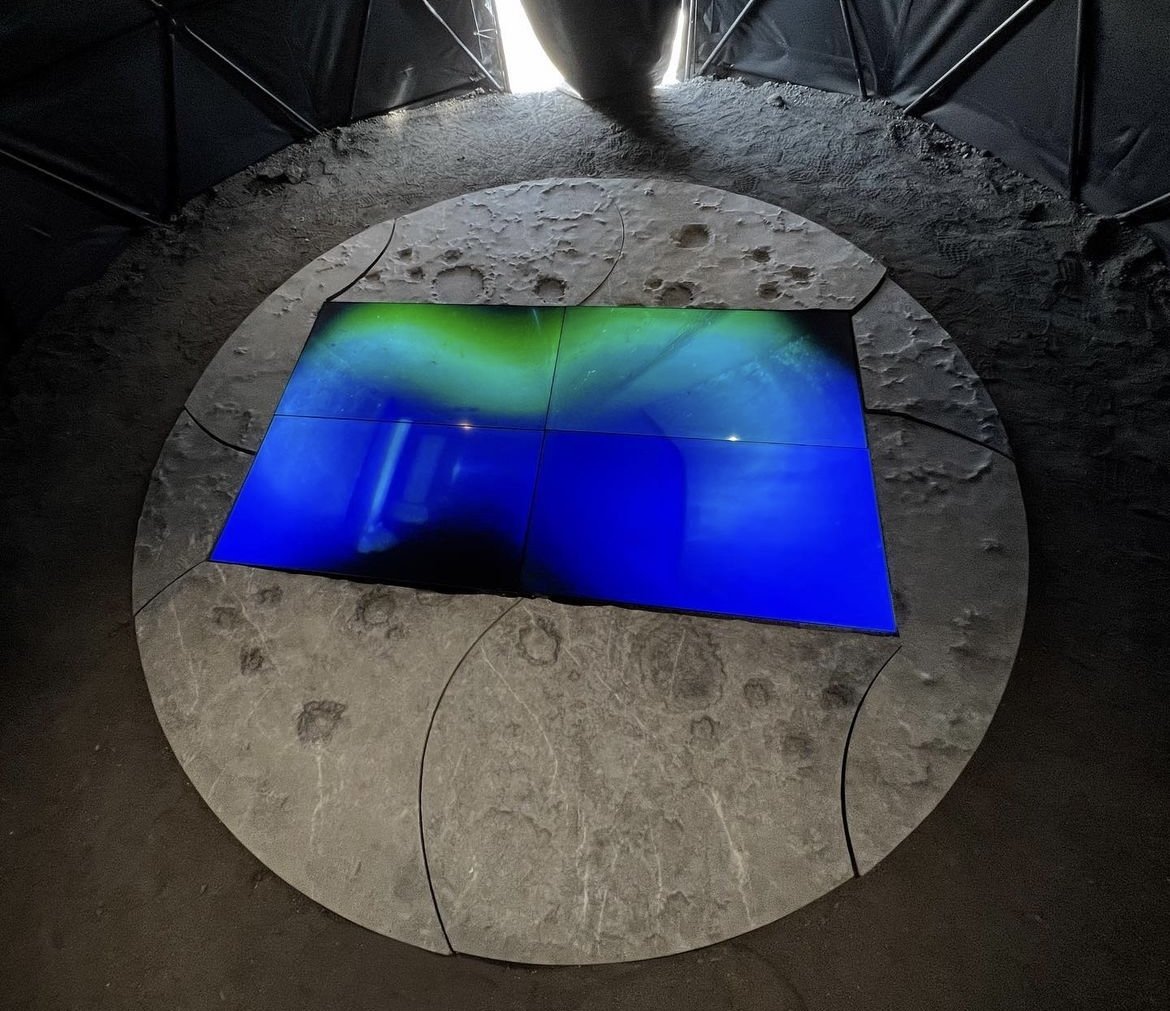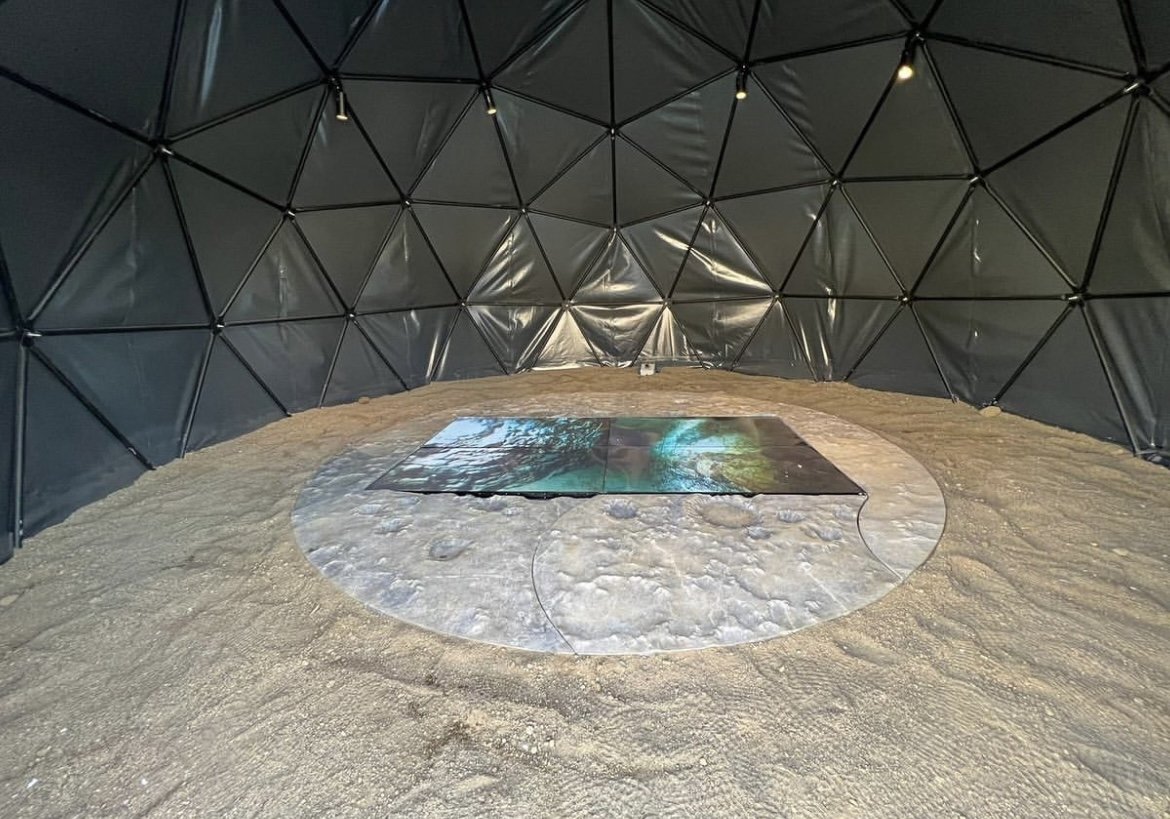© Turkuvaz Haberleşme ve Yayıncılık 2024
Ergin Çavuşoğlu, a renowned contemporary artist, has once again demonstrated the transformative power of art through his artwork called "The Journey Down the Current of All Those Who Were Adrift."
Creating a unique place of shelters for the earthquake survivors in Kahramanmaraş, Çavuşoğlu's project is a remarkable example of how art can create tangible solutions and provide hope to those in need.
The artwork "The Journey Down the Current of All Those Who Were Adrift," has been making headlines for its profound impact on those who have experienced the trauma of natural disasters. Created as a dome for an art exhibition, nowadays the artwork has transformed into a symbol of hope and resilience.
The artwork is particularly significant for children who may have lost loved ones or have been affected by the disaster in other ways. It provides a safe and creative space for children to process their emotions and reflect on their experiences.

In this way, the piece serves as a powerful example of the transformative power of art. It can be a tool for healing and resilience, and it can provide a beacon of hope in the darkest of times. I think this project is the perfect example of how art can be used as a tool to raise awareness and contribute to society.
Also, this poignant installation serves as a tribute to the victims of the Kahramanmaraş earthquake, which shook the region on Feb. 6 and claimed tens of thousands of lives.
What makes this artwork even more meaningful is its focus on children, who were among the most vulnerable and affected segments of society. The installation is now part of a playground for children, allowing them to interact with and experience the artwork uniquely and engagingly.
The installation comprises a large tent where people can gather and listen to fairytales, creating a moment of joy and respite for those affected by the tragedy, aiming to carry them into a new world – a short break from the heavy burden of trauma. As the people gather inside the tent, the artwork also promotes a sense of community and togetherness. The work reveals the surrounding reality through multifaceted narratives, emphasizing the relationship between shadows and the way objects are projected in time and space.

The shadows inside the tent represent the invisible "blood" vessels that connect under the ground or act as invisible highways between places and time. The installation, therefore, reflects a utopian Jules Vernean's “Journey to the Center of the Earth” where the earth is replaced by the surface of the moon, extending the vantage point to see under the surface of the earth. The installation reflects on the enduring and vital neural networks that connect us all, highlighting the importance of coming together and supporting each other during difficult times.
“The structure is a giant geodesic dome that will be used as a shelter for earthquake survivors in Kahramanmaraş. The dome has been transformed into an uncommon house that will provide a safe and comfortable place for people who have lost their homes in the earthquake,” said art consultant and gallery owner Sevil Dolmacı.
On the other hand, Sevil Dolmacı elaborated that she will be organizing an auction for the benefit of the earthquake in the coming days.

Ergin Çavuşoğlu’s work is not only a beautiful piece of art but also a symbol of hope and solidarity. It is a reminder that art can make a difference and that artists can use their talents to contribute to society. We should all be inspired by this act of generosity and kindness and strive to make a positive impact in our communities.
The project also demonstrates that artists can be effective agents of change, and their work can have a significant impact on others' lives. As such, it is important to continue supporting and promoting art to contribute to a better world.
The artwork serves as a reminder of the fragility of life, the impact of natural disasters and the need for support in times of crisis. By incorporating it into a playground, the artist has also created a space for children to reflect on these themes and to connect with others who have been affected by the catastrophe.
